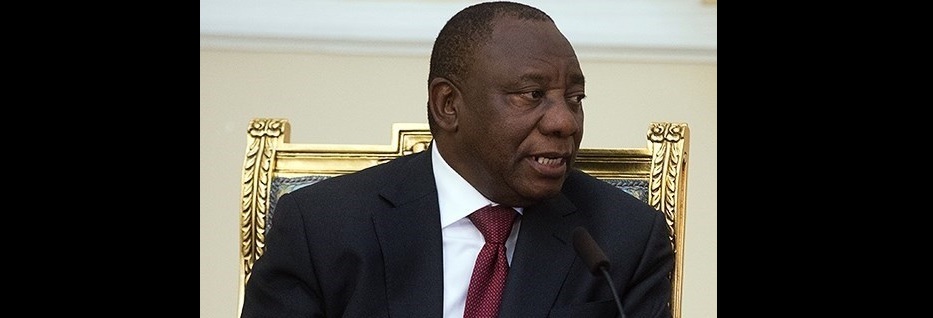In recent speeches Ramaphosa has also vowed to change the country’s constitution, which nominally guarantees private property rights, with the help of the radical Afro-Marxist party, the EFF (Economic Freedom Fighters). Together with the EFF, the ANC commands a two-thirds majority in the South African parliament, allowing it to change the country’s constitution at will.
Addressing the Zulu king, Goodwill Zwelithini, in Nongoma, Kwazulu-Natal, last week, Ramaphosa said that South Africa could be turned into a “garden of Eden” without its mainly white farmers.
“We can make this country the garden of Eden,” Ramaphosa said. “In fact, it is possible for us to begin a process of working the land and improving agriculture — making it a very successful factor in our country.”
In his reply to Ramaphosa, the Zulu king said: “We look to you to act…with speed.”
Since 1994, South Africa’s ruling party has already implemented a programme of so-called “land reform” whereby land was expropriated or bought from white farmers and turned into Soviet-style collective farms with hundreds of people living on one farm. The programme has been widely acknowledged as a complete failure, with 90 percent of previously productive farms coming to a standstill within the first two years.
Already in 2010, an opposition member in the national council of promises had asked the Minister of Rural Development and Land Reform, Gugile Nkwinti, “whether any previously productive farms purchased by the Government in the Free State since 1994 under the Land Reform Programme are now (a) abandoned and/or (b) unproductive”. In his reply, the minister confirmed that in the Free State, which is only one of South Africa’s nine provinces, 20 farms “had been abandoned” and that 144 more had been “found to be unproductive”.
In one infamous case in 2014, Thandi Modise, an ANC politician and former terrorist who served in the movement’s armed group attacking civilians known as Umkhonto we Siwe, had given herself a “land reform farm” and subsequently left about 100 animals on the property to die without food and water.
Modise, a former premier of the Northwest Province and who still serves as chairperson of the National Council of Provinces, was subsequently charged with cruelty to animals, with SPCA (Society for the Prevention of Cruelty to Animals) pressing charges against her. However, it is now almost four years later and the court case is still “pending”, according to state prosecutors, with the system protecting one of its own.
While billions of rands were spent on these old “land reform farms” that have mostly failed, Ramaphosa believes that repeating the Zimbabwean experiment by simply taking farms from their white owners will “turn South Africa into a garden of Eden”.
The South African mainstream media has mostly supported Ramaphosa as a “moderate” in his power struggle with former party leader and still the country’s president, Jacob Zuma.
However, since assuming leadership of the party, he has given several anti-white speeches reminiscent of the rhetoric of former president Robert Mugabe of Zimbabwe. On Saturday, Ramaphosa blamed the lack of economic growth in South Africa’s economy on “white control” of the private sector. He also announced that the mandate of the country’s competition authority would be broadened to see white ownership of any business as “anti-competitive”, saying:
“In order to reduce the ownership and control of the economy (by whites) and open up the market for new, black-controlled companies, we agreed to extend the mandate of the competition authorities.”
If the confiscation of land without compensation goes ahead, it has the potential to sink South Africa’s financial sector too. In the absence of any form of government subsidies or protection, South Africa’s private-sector commercial farmers are heavily indebted to banks.
They owe the state-owned Land Bank around R40 billion (about €3 billion) and the other banks approximately R160 billion (about €12 billion). If the banks had to write off all their loans to farmers bankrupted by the state’s racial confiscation plans, it would obliterate the banks’ capital. The average “Big Four” bank in South Africa has about €2 billion in capital.
















